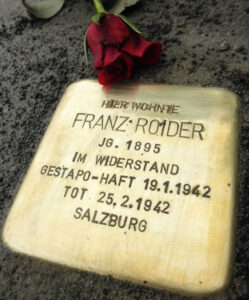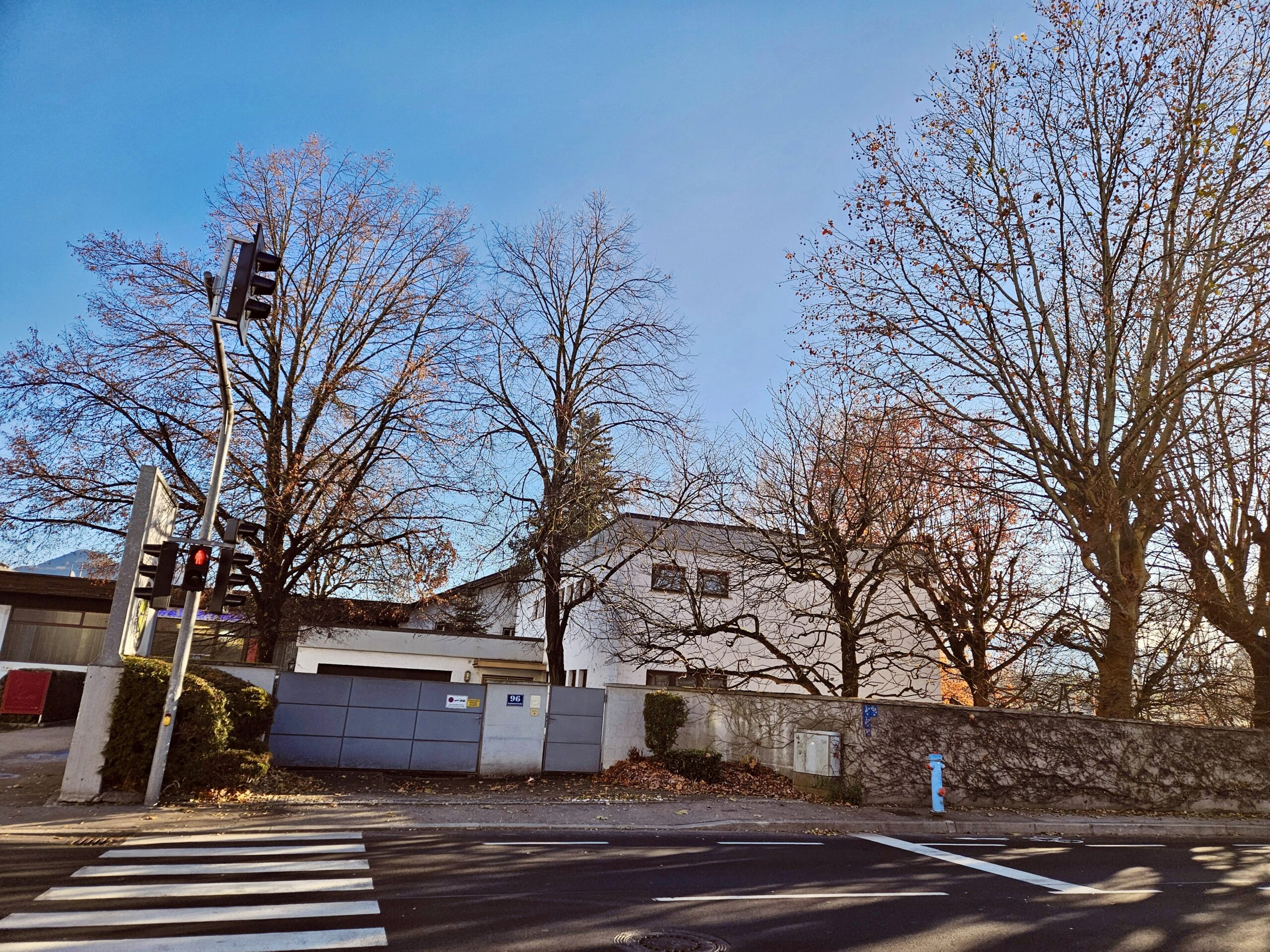Franz ROIDER was born in Kirchberg bei Mattighofen (in the Innviertal district of Upper Austria) on October 18, 1895.
He was a married railroader who worked in the rail yards moving railcars to organize trains. He and his wife had local citizenship rights in Salzburg and had lived in the Ramsauer Inn at 96 Vogelweiderstraße since May 1938.
Franz’ wife Therese was the lessee who ran the inn, and it catered for the most part to workers and railroaders from the surrounding Gnigl-Itzling neighborhood that was known for its strong support for the Social Democratic party before it had been outlawed by the Austrian dictatorship in 1934.
At the beginning of the Second World War a construction worker of Hungarian Jewish origin, a convert named Karl KOFLER who wasn’t registered with the police, was either a frequenter or lodger at the Ramsauer when he was caught up by the Gestapo in a series of events that led to his death in the Flossenbürg concentration camp.
Political activists and close friends of the ROIDERs lived near the inn and the Ramsauer became a favored meeting place for members of the resistance network on the railway lines.
A key figure in the resistance network was a former social democratic group leader in the Republican Defense League named Anton SCHUBERT. After the Nazis took power, SCHUBERT became the leader of the Communist local in Gnigl and was a member of the Austrian Communist Party’s leadership for the State of Salzburg.
He represented the Communists in a series of unsuccessful negotiations with Engelbert WEISS, the Salzburg leader of the Austrian Revolutionary Socialists (RSÖ), that were aimed at uniting the two competing resistance organizations. It would seem that the conspiratorial meetings in the Ramsauer Inn may have attracted the attention of the Gestapo.
In any case the Gestapo managed to penetrate the resistance networks with an undercover agent and they rolled up and smashed the two networks early in 1942.
At least 79 activists from the two organizations in the city and state of Salzburg were killed in the Nazis prisons and concentration camps.
The ROIDERs either belonged to one of the resistance groups or sympathized with them both, but in any case they had friends in both so they provided a means of communication between them.
On January 19, 1942 the Gestapo arrested the 46 year old railroader Franz ROIDER. He had paid membership dues to the RSÖ, but he was arrested on suspicion of working for the illegal KPÖ.
The Gestapo report claims that he »committed suicide by hanging« in the Salzburg detention center on February 25, 1942.
His wife Therese ROIDER, who had allegedly made contributions to both of the illegal groups, was also arrested and she appeared before a Salzburg court on September 7, 1943.
The innkeeper was accused of having »assisted a conspiracy to commit treason by allowing her inn to be used as a meeting place and focal point for the illegal Communist Party and by delivering her husband’s contributions to the Revolutionary Socialists«.
She was sentenced to two and a half years in prison for those »crimes«.
Therese (Theresia) ROIDER survived the terror years and she received victim’s compensation in liberated Austria for her political persecution.
She remarried and lived in Salzburg until her death at age 77.
Sources
- Salzburg city and state archives
- Documentation Archive of the Austrian Resistance (DÖW)
Translation: Stan Nadel
Stumbling Stone
Laid 13.07.2015 at Salzburg, Vogelweiderstraße 96



